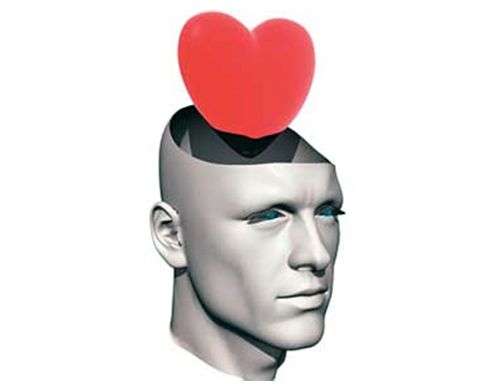 | « Back to article | Print this article |
Ever considered choosing a partner based on your psychological make-up?
Nikita Puri tells us how!
Time and over again, Ishdeep Sawhney realised that those more experienced than him were all saying the same thing -- "The most important decision you make is deciding who you get married to."
 With divorce rates for first marriages being about 50 per cent in the US, California-based Sawhney wanted to proceed with caution.
With divorce rates for first marriages being about 50 per cent in the US, California-based Sawhney wanted to proceed with caution.
"I wasn't sure how I could objectively decide who the right person for me was and then I came across research that showed that neuroscience could help in asking the right questions to a prospective partner," says Sawhney, formerly an engineer with Apple.
As a couple you make hundreds of decisions together, and if you are aligned on those decisions, then you make a good couple, believes Sawhney -- these decisions could range from spending your earnings on a BMW to giving your child the best of education.
Based on how sharing core human values could be the foundation of a stable, strong relationship, Sawhney's Banihal.com is now steadily attracting attention from across the globe.
The exclusivity of Banihal, which Sawhney co-founded with Upender Sandadi, lies in the fact that matches are made following neuroscience-based recommendations. Neuroscience focuses on the brain and its impact on our behaviour and cognitive functions.
In the future, medical compatibility will be an important factor when it comes to choosing your life companion, believes Navdeep Ahuja who specialises in cognitive neurosurgery at the All India Institutes of Medical Sciences, New Delhi, and Buzz4health.com
"We have already seen potential couples going in for DNA tests and blood group compatibility, but in the time to come, neurological and cognitive parameters are going to play a role in evaluating compatibility among couples too," he adds.
"The science is still at a research level and much of the work in the field of neuroscience has only been done in the past few years," says Sawhney.
A chunk of his research is based on Benjamin Libet's experiment done in the 1980s. This experiment, named after the scientist, essentially says that unconscious brain activity comes before conscious actions, suggesting that a person's subconscious mind dictates conscious actions.
Ahuja cites another example that has similar findings.
"A study involving 135 newly weds has shown that spouses' automatic attitudes, not their conscious ones, predict changes in their marital satisfaction," he says.
Conducted in 2013, the study, led by James K McNulty, also suggests that spouses with positive automatic attitudes are less likely to experience declines in marital satisfaction over time.
"We have a very extensive, lengthy questionnaire for people who sign up with us," says Sawhney.
This questionnaire includes everything -- from educational qualifications to the place you work and the place of your birth. It also includes 80-odd questions to understand a person's psychological make-up and the people you idolise.
"The people you idolise represent the qualities you uphold," says Sawhney, adding how Banihal looks at "very deep-rooted anchor points."
Some values are just hardwired in us.
"Just look at how memories are formed -- your core values are the telescope through which you look at the world. Whenever we are faced with conflicting information, we just ignore some things," says Sawhney, "Using neuroscience to find a partner is about creating an eco-system based on your core values."
All of the people coming to Banihal have already tried many matrimonial sites, says Sawhney.
"These are the same people who've found success in their workplaces and want to find the same success when they get married. They want it to work out in the long term."
The name Banihal comes from a tunnel in Jammu and Kashmir.
"My Kashmiri grandfather," says Sawhney, "would often speak about this tunnel. One side of this tunnel lies a dry, rocky terrain, and on the other side is the lush, beautiful valley of Kashmir."